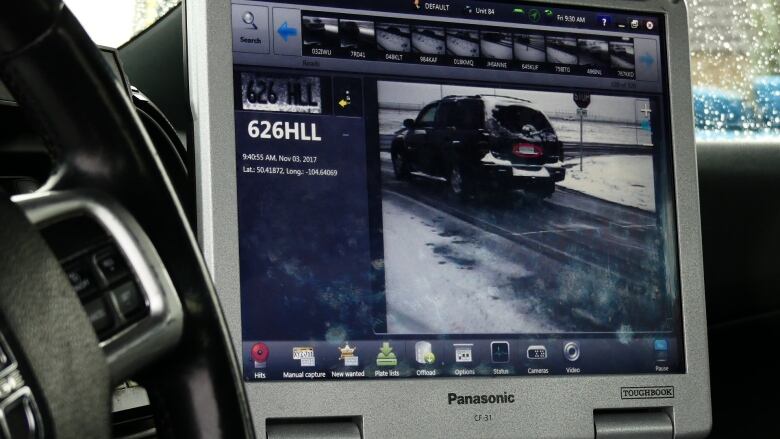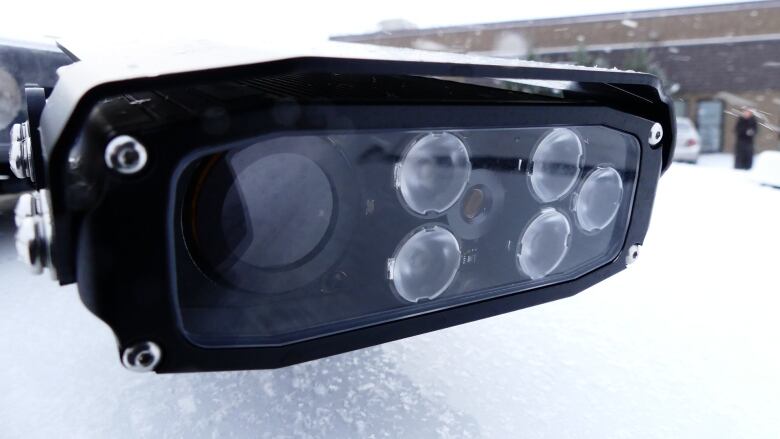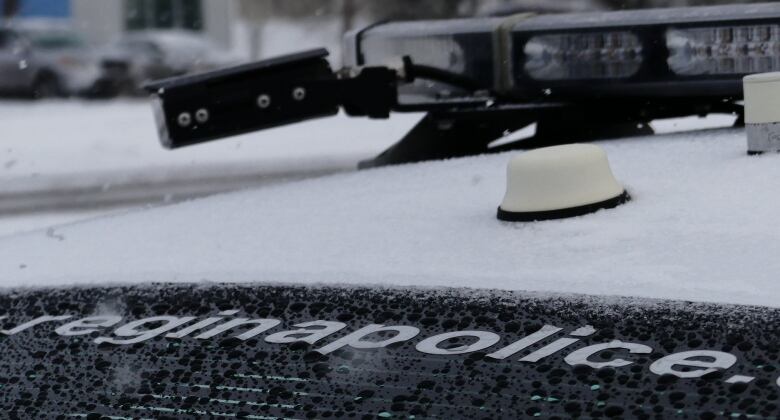Police and SGI cracking down on suspended drivers, unregistered vehicles
Officers are relying on automated licence plate scanners to nab more people

Police in Saskatchewan are relying on automated licence plate readers to help them catch more people who are driving without a licence or are behind the wheel of an unregistered vehicle.
Saskatchewan Government Insurancesays police will target suspended drivers and unregistered vehicles for the month of November.
"People don't get suspended without cause," said Earl Cameron, executive vice-president of the Auto Fund the province's insurance program in an press release.
"They may have their driving privileges revoked due to impaired driving or other dangerous driving behaviours."
People who get into accidents without insurance can take a financial toll on the province, said police.
"Obviously if I don't have insurance and I [hit] somebody and it's going to cost SGI to hundreds of thousands of dollars to pay everything out, that money's got to come from somewhere," saidConst. CurtisWarnar, who is with theRegina Police Service traffic safety unit.
That didnt take long. 12 min after the media event, I stopped an unregistered vehicle from the ALPR @reginapolice @SGItweets #DoNotRiskIt pic.twitter.com/VKVg8daAes
—@RPSTrafficUnitSGIspokesman TylerMcMurchy also pointed to the money involved in an uninsured crash.
"You could bepotentiallyon the hook for thousands of dollars in costs resulting from that collision," he said.
McMurchy said driving while uninsured is a bigger issue than most people would think. More than 50,000 drivers are suspended in Saskatchewan at any given time. In 2016, more than 1,800 people were convicted for driving while disqualified.
That's where the automated plate readers come in.

SGIhas provided funding to equip dozens of police cars throughout the province with the devices in recent years, the Crown corporation said.
The readershave the capacity to scan one plate persecond, according toSGI. Over a 12-hour patrol shift, they might scan up to 6,000 vehicles, Warnar said. He said thatcan result in 100 to 200checks on plates in police or SGI databases.
The devices scan the licence plate, takea picture of it and providethe plate and vehicle information to the officers in the car.
Then officers decide whether to run the plates through adatabase something they now have access to in the car.
Warnarsaid the automated plate readers don't retain the collected information.
"There's no right to privacy that we're infringing upon," he said. "It'sthe same as if everybody drives by and looks at your license plate."

The database is set up to look for criminally prohibited drivers and expired licence plates, but officers also have the power to add plates into the system.For example, they couldadd a plate number relevant to an Amber Alert case or a stolen vehicle incident.
Two police cars in Regina have the automated readers, and the service is getting a third in the fall.
People can expect to see more plate readers throughout Saskatchewan in the near future, McMurchy said.
Currently, there are 59 in the province that have been funded by SGIand others that have been paid for by police departments.












_(720p).jpg)


 OFFICIAL HD MUSIC VIDEO.jpg)
.jpg)



























































































